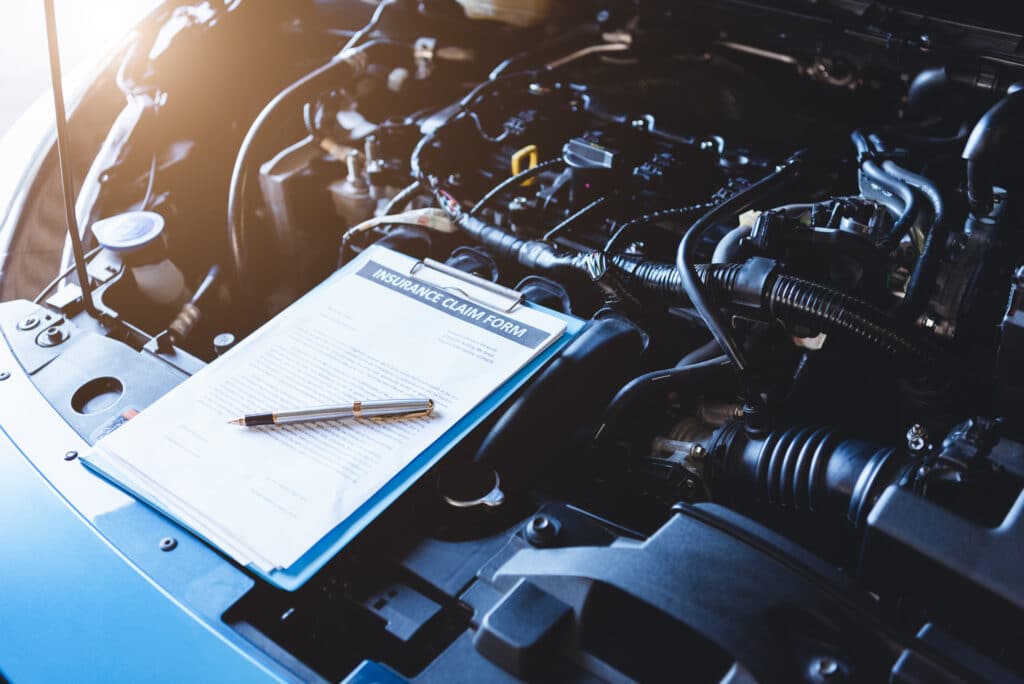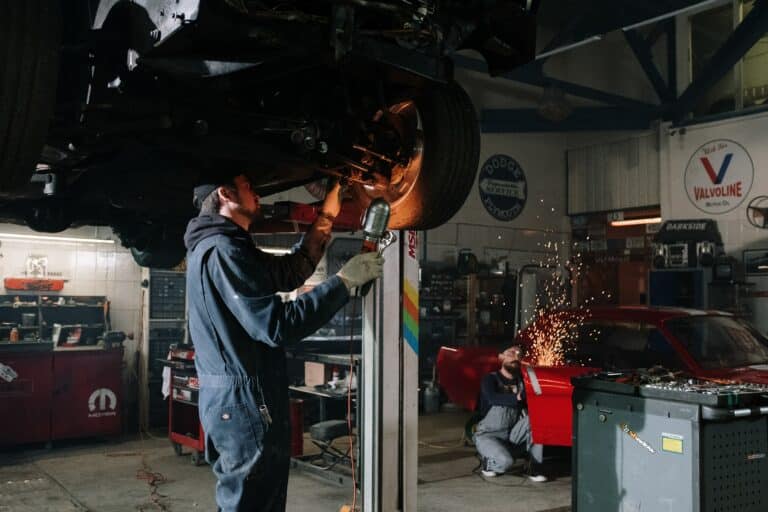
As a car owner, protecting your vehicle and your financial peace of mind is always a top priority. However, navigating the waters of car warranties and service contracts for motor vehicles can be overwhelming. If you’ve heard the term ‘auto service contract’ but aren’t quite sure what it entails, don’t worry, you’re not alone. This comprehensive guide is designed to demystify the concept of vehicle service contracts, what they are, what they cover, how to choose the right one for you, and why they’re an essential consideration for any responsible vehicle owner.
Understanding the Basics: What is a Vehicle Service Contract?
In essence, a vehicle service contract, sometimes referred to as an “extended warranty,” is a service agreement between a car owner and a company that binds the company to pay for certain repairs or services within a specified period. It’s an additional layer of protection beyond the manufacturer’s warranty, which typically has more limitations and a set expiration, usually within a few years or a specified mileage. This contract can be huge for peace of mind, as it cushions the blow of high repair costs after your factory warranty has lapsed.
The Purpose and Necessity
A vehicle service contract is necessary for several reasons. It provides coverage for parts and services not always included in a standard warranty, ensuring that you are not left bearing the brunt of potential costly repairs. For those who plan to keep their vehicles for an extended period, a service contract can offer a financial safety net, helping to manage the risk of unforeseen mechanical failures.
Key Differences from a Warranty
Unlike a warranty—which is included in the purchase of a new car and is limited to specific terms—a service contract is an additional purchase and generally more comprehensive in terms of what it covers. It may offer to extend coverage for a longer period than the manufacturer’s warranty or cover repairs not included in the original warranty.
The Spectrum of Coverage: Benefits of a Vehicle Service Contract

The decision to buy an auto service contract is a substantial one, potentially saving you from significant repair bills down the line, but it goes beyond that. Let’s delve into the various benefits one can enjoy.
One of the primary benefits that service contract cover includes is the assurance of predictable maintenance expenses. By understanding what is covered under your service agreement, you can budget for your car’s future needs without the stress of unexpected, high-cost repairs. Furthermore, service contracts often allow for the use of OEM (Original Equipment Manufacturer) parts, ensuring that any replacements adhere to the vehicle’s original specifications and contribute to the longevity and reliability of your car. Additionally, many contracts offer added perks, such as roadside assistance, towing, and rental reimbursement while your vehicle is in the shop, delivering an extra layer of convenience and security.
Coverage for Repairs and Maintenance
A crucial advantage of a vehicle service contract is the comprehensive coverage it offers for repairs and sometimes even regular maintenance, depending on the contract you select. This can include everything from engine and transmission overhauls to steering and electrical systems, and much more.
Cost Savings and Budgeting
With auto service contracts, you’ll pay a one-time fee or a series of installments, and the contract provider takes care of the rest, assuming the repairs are covered within the contract. This allows you to budget more effectively for your vehicle expenses and protects you from the uncertainty of future repair costs.
Peace of Mind and Protection Against Unexpected Expenses
One of the most significant benefits of a vehicle service contract is the peace of mind it offers. You can drive with confidence, knowing that many costly repairs are covered, and you won’t be caught off guard by an unexpected repair bill that could amount to thousands of dollars.
The Fine Print: Types of Vehicle Service Contracts
An auto service contract comes in various forms, each tailored to different needs and budgets. Understanding the types available is critical when deciding on a plan.
Comprehensive Coverage Plans
A comprehensive plan is the most inclusive type of contract, covering a wide range of vehicle components and systems. This type is typically more expensive but offers the highest level of protection and peace of mind.
Powertrain Coverage Plans
Powertrain plans focus on the most vital parts of the vehicle necessary for it to function—engine, transmission, and related components. They’re a middle ground option, providing more extensive coverage than the basic manufacturer’s warranty at a typically more affordable price point.
Component-Specific Coverage Plans
These are more customized plans that focus on specific systems or parts, allowing you to tailor the coverage to areas you believe need the most protection. For those looking for something more modest and budget-friendly, this type of contract can be a solid choice.
Navigating the Marketplace: Choosing the Right Vehicle Service Contract
Selecting the right vehicle service contract is as important as deciding to purchase one. Here’s how to ensure you’re making the best possible choice for your vehicle and your needs.
Consider the Age and Mileage of Your Vehicle
The older and more used your vehicle, the more likely it is to encounter issues. Tailoring your service contract to cover the parts that are more prone to wear and tear, given the current state of your motor vehicle, is essential.
Routine maintenance is a key factor to consider when evaluating a vehicle service contract. Regular upkeep, such as oil changes, tire rotations, and brake inspections, are often included in comprehensive service plans. Such inclusion can significantly reduce the overall cost of keeping your vehicle in top condition while also ensuring that your car continues to run smoothly and efficiently. It’s important to check if these types of services are covered, as they can provide additional value and further protect you from out-of-pocket expenses.
Assess Your Budget and Coverage Needs
Vehicle service contracts vary widely in cost, so it’s crucial to find a balance between what you can afford and the level of coverage you need. Think about the potential costs of repairs, and choose a plan that offers the right level of protection without unnecessary extras for your motor vehicle.
When considering coverage needs, it’s important to distinguish between a new vehicle and a used vehicle. New cars often come with a manufacturer’s warranty that provides comprehensive coverage for the first several years or a certain mileage, reducing the immediate need for an extensive service contract. However, as the warranty period concludes, a more robust service contract becomes valuable to guard against subsequent repairs. In contrast, used vehicles might require a different approach, as they might be out of their warranty period. Owners of used cars should prioritize service contracts that provide extensive coverage for high-risk components likely to need repairs, ensuring that they are protected against potential issues that come with an older vehicle’s wear and tear.
Research and Compare Providers
Not all service contract providers are created equal. Make sure to do your due diligence, looking for companies with good reputations for fair service and the financial stability to honor their contracts.
When researching service contract providers, consider choosing an insurance company that specializes in vehicle service contracts or an aftermarket provider with a solid track record. Unlike manufacturers, these companies may offer more flexible plan options and possibly better pricing structures. Furthermore, a reputable insurance company or provider will also deliver dependable customer service and transparent claim processes, key factors in managing any future repairs with ease and confidence.
Understand the Fine Print
Every contract has its own set of terms and conditions that you must adhere to in order to qualify for coverage. Be sure to read and understand all the details before signing to avoid any unpleasant surprises.
In addition to choosing the appropriate coverage, ensuring your service contract lasts longer also hinges on the service contract’s terms regarding transferability. A transferable service contract can significantly extend its practical value, making it an additional selling point if you decide to sell or trade in the vehicle before the contract expires. Be sure to inquire about the transfer policies when comparing different service contracts, as this can lead to longer-term protection and potential benefits for the new owner, thereby also retaining the value of your vehicle in the marketplace.
Dissecting Myths and Misunderstandings: Common Misconceptions about Vehicle Service Contracts

Despite the apparent benefits, there are still misconceptions that could lead some to overlook the value of a vehicle service contract. Let’s address some of the more common misunderstandings.
“It’s Just Another Warranty”
While they offer similar outcomes in the form of covering repairs, vehicle service contracts often provide more extensive coverage, filling in gaps left by the warranty of the manufacturer.
“Repairs Are Always Covered”
Not all repairs are covered by an extended warranty. It’s essential to review the policy thoroughly, as there will be exclusions and limitations regarding what’s covered and under what conditions the coverage applies.
“Dealers Always Offer the Best Deals”
It’s a good starting point to check out service contracts offered by dealers, but there’s no one-size-fits-all answer. Sometimes, you can find more affordable or more comprehensive plans by shopping around with different service contract providers.
Frequently Asked Questions: Vehicle Service Contracts and Lemon Law
What is a vehicle service contract?
Auto Service Contracts, often referred to as an extended warranty, is a plan you purchase to help cover the cost of certain repairs and maintenance for your vehicle, beyond what the manufacturer’s warranty covers.
How does lemon law relate to vehicle service contracts?
Lemon laws are designed to protect consumers from chronically defective vehicles, commonly known as “lemons.” If your vehicle is considered a lemon, the manufacturer is typically required to replace the vehicle or refund your money. A vehicle service contract is useful for repairs outside of the lemon law’s scope, offering additional protection for your vehicle’s specific components or systems.
Are repairs covered under a vehicle service contract if my car is declared a lemon?
If your vehicle is declared a lemon under the state’s lemon law, the manufacturer may need to refund or replace your vehicle. However, a vehicle service contract may cover repairs while you are going through the lemon law process or for problems that do not qualify under the lemon law.







